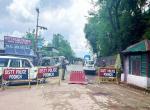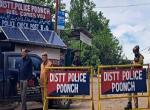Abductions or hostage-taking are not new to CPI (Maoists). To take recent statistics, between 2005 and April 2012, nearly 1000 incidents of abductions by the Indian Maoists have been recorded.
But, this is for the first time that two separate groups of Maoists have resorted to simultaneous, though uncoordinated, kidnappings, that too from a single state (Odisha). Odisha has now joined Chhattisgarh and Jharkhand as top three states of India with maximum number of abductions by Maoists.
On 14 March 2012, Paulo Bosusco, a 51-year old Italian tour operator was kidnapped by the Odisha State Organising Committee (OSOC) of the CPI (Maoists) led by Sabyasachi Panda from the Daringbadi area of tribal-dominated Kandhamal district along with an Italian tourist, Claudio Colangelo, while they were trekking. While Colangelo was freed on 25 March as a “goodwill gesture”, Bosusco continued to remain in Maoist captivity. Meanwhile, on 24 March, Andhra Odisha Border Special Zonal Committee (AOBSZC) of the Maoists led by Ramakrishna kidnapped Jhina Hikaka, a 37-year old tribal leader and a first time member of the state legislative assembly from the Laxmipur constituency, in Koraput district of Odisha. Interestingly, one group did not know the plans of the other. However, analyzing the demands of the two groups, it is clear that than anything else they wanted release of their ‘comrades’ who have been languishing in various jails.
Maoists have found hostage-taking of high-profile people the best bet, especially to free their colleagues. Earlier they used to indulge in jail breaks. But, with the increase in security measures, jail-breaking has been found difficult, risky and uncertain. This apart, such tactics are capable of motivating cadres, especially when the chips are down. Although the OSOC placed 13-point charter of demands1 to release Bosusco, they relented as soon as Subashree Panda was released. The kidnappers of Hikaka were more direct; they placed just one demand: release of 30 prisoners. They insisted that the release had to be in the form of instant swap of prisoners with the legislator led by Hikaka’s wife accompanied by lawyer Nihar Ranjan Patnaik in the Narayanpatna area. The list of 30 prisoners includes 15 members of Naxal-backed Chasi Mulia Adivasi Sangha (CMAS) and a Naxal leader Chenda Bhusanam alias Ghasi, who is accused in the killing of at least 55 security personnel and carrying Rs 10 lakh reward on his head. They also want the state government to drop all charges against the prisoners.
When the Odisha Police Association and Odisha Constable, Havildar and Sepoy Manasangh threatened to boycott counter-insurgency operations if hardcore Maoists like Bhusanam were released, the government finally agreed to “facilitate” release of 23 prisoners. “Facilitate” here meant that Maoist groups had to move bail pleas for release of jailed rebels instead of seeking their immediate release and physical presence for executing the prisoner-hostage swap. The Maoists later climbed down to leave Ghasi from the list, but stuck to 29 and gave a deadline of 18 April. In the bargain, the government has moved its numbers to 25 including 17 members of CMAS, but has glued to its earlier position of “release only through bail”. However, as the 18 April deadline ended and as the Maoists refused to extend the deadline any further, the government of Odisha agreed to drop charges against 13 (eight CMAS members and five Maoists). Rejecting the offer, the AOBSZC has conveyed its decision to “try” MLA Hikaka at a “Praja Court” (“People’s Court”) on 25 April 2012.
It has become very difficult for the government to negotiate with the kidnappers of MLA Hikaka because of AOBSZC’s refusal to engage any mediators. The communication has thus far been through the media. But, in the case of Italian hostage-taking the presence of mediators acceptable to both parties – Dandpani Mohany, convenor of Jan Adhikar Manch and B. D. Sharma, former IAS officer and tribal rights activist – made the job of negotiation easier for the government and in bringing down the trust deficit. The government’s negotiating team, consisting of Odisha Home Secretary U. N. Behera, Panchayati Raj Secretary P. K. Jena and Scheduled Tribe and Scheduled Caste Welfare Secretary S. K. Sarangi, though not specialised on hostage negotiations, handled those subjects that fell under the charter of demands placed by OSOC.
Of the two groups, OSOC seems more concerned about the local public opinion. Hence, it did not lay hands on any local official or leader who is more popular. The OSOC in fact slammed kidnapping of Hikaka, who remains popular among the people of his constituency. OSOC leader Panda remarked, “We condemn the Maoist violence in the Andhra Pradesh-Orissa border region. There was no reason to abduct the MLA when the talks between the Naxals and the government were going on in a cordial manner.” The groups operating from other states, like for instance AOBSZC, seem more hardline and do not bother much about public opinion in Odisha. So they target high-profile people from border districts of Odisha as they did in the case of Vineel Krishna, the then district magistrate of Malkangiri district, last year.
The spate of abductions clearly shows that Maoists have become desperate. They have lost key leaders like Kishanji and Azad; some of the important Naxal leaders like Kobad Ghandy are in prisons of various states; although not highly successful, ‘Operation Green Hunt’ has been keeping the Maoists on their toes; their numbers are depleted; they are not even in a position to convene its Party Congress that is overdue. It is, therefore, crucial not to bend to any of Maoists’ demands. History of hostage-taking in India teaches an important lesson: ‘do not be penny wise and pound foolish’. Conceding to Maoists demands will be a big blunder in the long run. It is nothing wrong to negotiate, but not on their terms.
End Note:
The Charter of demands included: release of five Maoist leaders including Sabyasachi Panda’s wife, Subhashree Panda; actions be taken against police officers who are charged with rape, custodial deaths and violence against tribals and villagers; access to potable water; provision of primary education, and health facilities; irrigation cover for land in every village; lifting of the ban imposed on ‘mass organisations’; complete halt of “Operation Green Hunt”; withdrawal of the Central forces from the tribal regions of the state of Odisha; ban on the visit of tourists to tribal areas; withdrawal of cases against tribal people lodged in jails ‘in the name of Maoists’; implementation of the ‘agreement’ with the rebels for the release of the then collector of Malkangiri district in February last year; cancel all MoUs with MNCs; ensure the Forest Conservation Act, the PESA and other laws are adhered to and minimum displacement of tribals takes place.
Author is Senior Fellow at Vivekananda International Foundation
Published Date : 25th April, 2012









Post new comment